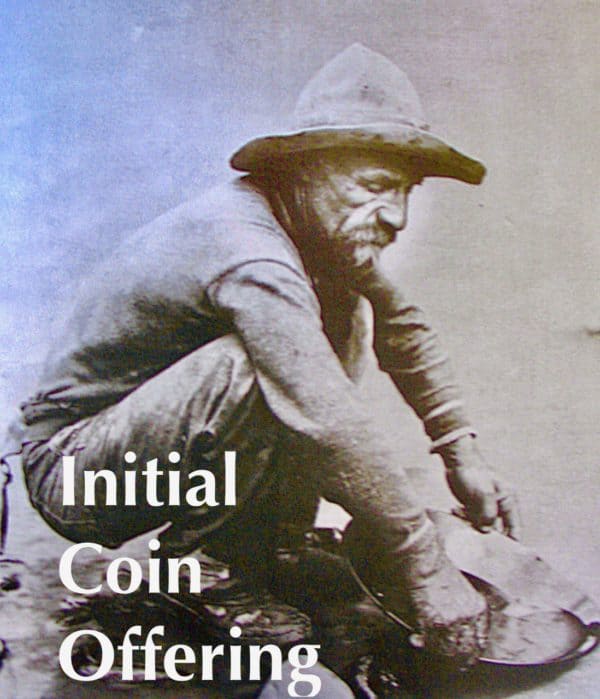
The Initial Coin Offering (ICO) space has been rocketing recently. It seems that every few days the next hot ICO is raising incredible sums of money from global investors. ICOs have plenty of supporters and detractors with most followers advising caution in this largely unregulated sector. While we know that regulators have been watching the emerging ICO market so far it has been more of a wait and see approach. Crowdfund Insider Senior Contributor Amy Wan posited earlier this year that ICOs are probably regulated by securities law.
Just this past week, Tezos raised an astounding $232 million in its crowdfunded offer. Bitcoin 65,637 and Ether 361,122 was invested into Tezos.
Another hot offer was Bancor. This ICO raised $144 million in June. The offer engendered a hot debate regarding the Bancor business plan with at least one industry expert questioning the Bancor value proposition.
The rapid rise of ICOs has had law firms scrambling to better understand this newest method to raise capital online. Recently, we heard the New York City based law firm of Ellenoff, Grossman & Schole (EGS) had created an internal working group to better understand the ICO market. Doug Ellenoff, a founding partner of EGS, has best been known for his staunch advocacy of investment crowdfunding. A clear supporter of innovations in finance, Ellenoff maintains a close relationship with federal securities regulators. Crowdfund Insider recently contacted Ellenoff to learn about what his law firm has discovered in their research regarding ICOs. Our discussion is below.

Crowdfund Insider: EGS has recently created a working group on Initial Coin Offerings. Can you please explain the mission of this group and what you hope to accomplish?
Doug Ellenoff: Furthering our ongoing interest in enhancing entrepreneurs access to capital through both traditional and alternative means of finance, we decided to dedicate a group of our senior securities professionals to learn more about ICOs and come to our own independent analysis about the legal foundation on which ICOs rest.
ICOs present an exciting new means for entrepreneurs to raise much needed capital in a new manner.
In less than twelve months more than 60 companies have raised more than five hundred million dollars. [Editors note: this was prior to Tezos]
As professionals we have taken considerable interest in ICOs and have taken leadership positions in the establishment of various other new programs, like PIPEs/RDs, SPACs and most recently Crowdfunding. We are always looking out for new financing techniques and we believe that we have a unique positioning to assess ICOs and how we might be of assistance in this emerging program.
 Crowdfund Insider: Can you share anything of note that you have uncovered to date?
Crowdfund Insider: Can you share anything of note that you have uncovered to date?
Doug Ellenoff: There are numerous well intentioned entrepreneurs represented by very qualified lawyers and law firms and they have thoroughly analyzed how ICOs operate in the context of traditional securities laws and what constitutes a security.
While there are certain offerings that seem to be defensible on a highly technical basis, there are others which really strain the bounds of such thinking. Having worked cooperatively with regulators on most of our new programs, we tend not to rely solely on technical analysis in lieu of common sense for the simple reason that you may miss the forrest for the trees.
Furthermore, you may have to spend substantial sums of money defending that position all the way through the courts if challenged.
We believe that any enthusiasm for a new program, like ICOs, ought to also consider the potential impact on the public and why regulators who are tasked with the difficult task of consoling the public after suffering losses might have legitimate public interest concerns.
It boils down to whether you prefer to ask for permission first or ultimately forgiveness. The current euphoria like other sharing economy phenomenas seems to have elected the latter.
Our preferred route, like we did with the JOBS Act is to engage fully with all stakeholders including regulators to ensure that the most practical and responsible approach is undertaken, even if that means delay and compromise.
Crowdfund Insider: The ICO market has been red hot. Do you believe this a bubble? Or is this just early excitement?
Doug Ellenoff: As we have been on record with most of the other programs that we have participated in, we encourage a slow build of any new program so that the inevitable mistakes and inadvertent oversights can be ironed out in a measured way out of the limelight so that we can collectively build a solid foundation before the program accelerates and becomes institutional.
We have our concerns that ICOs haven’t gone through that maturity curve first but want to work with the industry to ensure a successful long term outcome.
 Crowdfund Insider: For people participating in an ICO it is clearly an investment. But it is a security?
Crowdfund Insider: For people participating in an ICO it is clearly an investment. But it is a security?
Doug Ellenoff: There seems to be a defensible argument that in certain cases that an ICO can be structured so as to not be deemed a security in the classic sense. Taking that position is not without significant regulatory risk in our judgement.
As your question intimates, it’s an “investment”. We would encourage issuers to pay particular attention to the actual purchasing value of the individual tokens. Even if these offerings aren’t technically securities offerings, they still may be subject to a variety of other regulatory regimes and do clearly cause purchasers to speculate with their earnings.
There seems to be an emerging refrain amongst industry participants that the entrepreneurs are prepared to take the business risk of taking the position that ICOs are not a security and therefore exempt from not only the securities laws but other possible regulations as well.
We understand that Entrepreneurs need capital but we don’t feel that they are really weighing the full risks of their decision to proceed. We have our concerns that this analysis is both expedient and naive in a highly regulated industry.
The ask for forgiveness approach may work in the transportation and hospitality industries but it worked less well in online gaming and we fear that it will fare considerably worse with this new program in the securities industry if not managed carefully. The securities industry balances capital formation AND investor protection.
Crowdfund Insider: Do you expect regulators to increase oversight? Where does the SEC stand on ICOs?
Doug Ellenoff: Unquestionably and inevitably yes, Federally and at the State level. The SEC and other regulators are aware of ICOs and are no doubt in the process of establishing their views on how to proceed. Don’t take their inaction at this juncture as any kind of endorsement or acceptance. It doesn’t work that way.
Crowdfund Insider: Have you encountered any acts of fraud to date?
Doug Ellenoff: Depends on what you mean by fraud.
From a securities law perspective, if some ICOs are deemed to be a security, all of those ICOs are likely to be deemed a fraud on the market if they weren’t processed properly as securities offerings. The subsequent purchase and sale of the coins will be integral to that analysis as well.
 Fraud as in stolen capital or capital obtained in misleading ways may not be uncovered for sometime, if it even really turns out to be much of an issue at all. We are concerned though with potential manipulation of the valuations/pricing of the secondary trading of those coins, which could be deemed a fraud as well. Might the company have liability for this secondary market trading? These are all novel issues which need to considered. Because the program is too early in its development, readers shouldn’t take any comfort yet.
Fraud as in stolen capital or capital obtained in misleading ways may not be uncovered for sometime, if it even really turns out to be much of an issue at all. We are concerned though with potential manipulation of the valuations/pricing of the secondary trading of those coins, which could be deemed a fraud as well. Might the company have liability for this secondary market trading? These are all novel issues which need to considered. Because the program is too early in its development, readers shouldn’t take any comfort yet.
Regardless, we are quite concerned with the speculation and rapidly increased valuation attributed to the purchased coins. As with all investments, we would encourage moderation and diversification.
Separately, even without a fraud, we have our concerns about the impact on the companies for future finance ability and sale ability once they have undertaken an ICO. Until these issues are addressed and resolved, there will be considerable market uncertainty that may cause harm to these companies.
Crowdfund Insider: Do you believe ICOs will become a robust method for capital formation over the next few years?
Doug Ellenoff: We do not. Although the markets have been as strong as we have seen in many years, we don’t believe that it is sustainable at its current rate.
Have a crowdfunding offering you'd like to share? Submit an offering for consideration using our Submit a Tip form and we may share it on our site!

